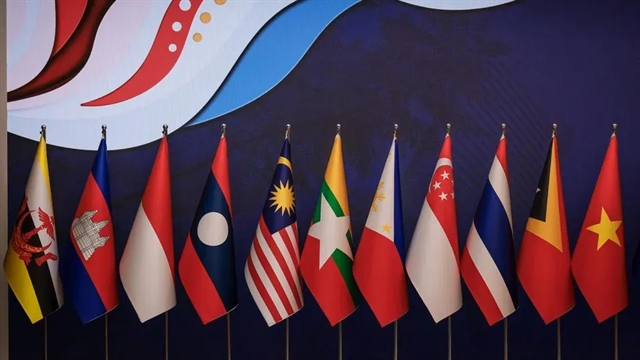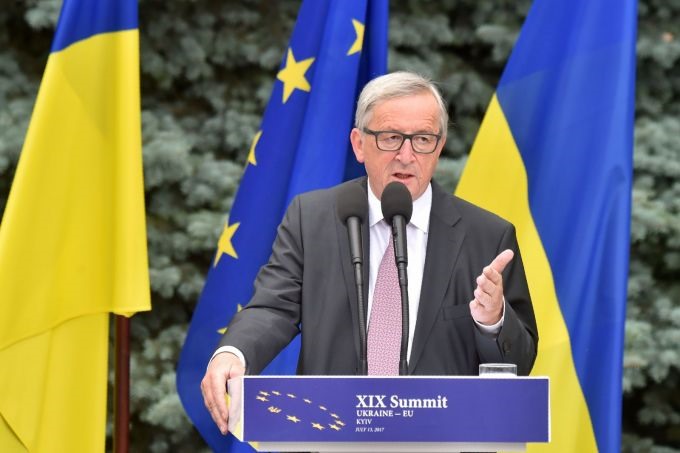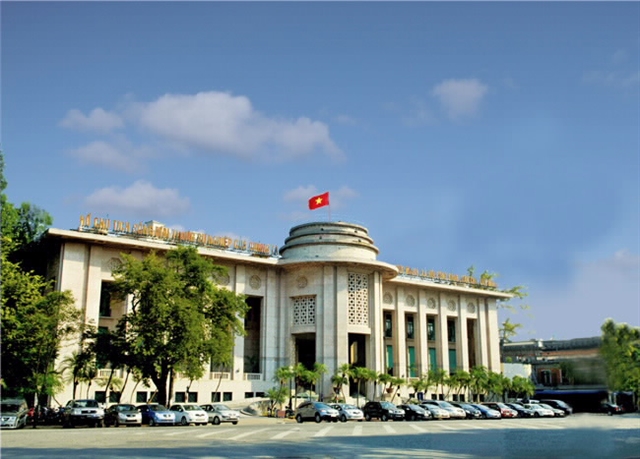 World
World

European Commission President Jean-Claude Juncker will on Wednesday unfurl plans to deepen EU integration after Brexit, sailing with a change in the wind a year after Britain's shock vote to leave.
 |
| European Commission President Jean-Claude Juncker will on Wednesday unfurl plans to deepen EU integration after Brexit, sailing with a change in the wind a year after Britain’s shock vote to leave. — AFP Photo |
STRASBOURG, France — European Commission President Jean-Claude Juncker will on Wednesday unfurl plans to deepen EU integration after Brexit, sailing with a change in the wind a year after Britain’s shock vote to leave.
With populism at bay and the economy on the upswing, Juncker’s annual State of the Union speech to the European Parliament in Strasbourg, France, is expected to strike a far more optimistic note than last year.
The head of the EU’s powerful executive arm is not expected to dwell on Brexit but will say it is a "huge opportunity" that could end divisions among the remaining 27 members, European sources said.
But his call for increased cooperation will be balanced with the need to heal a deepening split with eastern European countries that resist any move to further integration.
Juncker told Politico Europe newspaper last week that "while I am not an integration fanatic, I am very much in favour of deepening the European Union and at the same time respecting to the fullest extent justified, national interests." The expected positive change of tone by Juncker as he addresses the 750 MEPs will be dramatic compared to last year when a string of crises from the debt in the eurozone to migration culminated in the the Brexit earthquake.
The former Luxembourg prime minister, 62, has less than two years left in office to ensure that his legacy is not limited to the departure of one of the European Union’s largest member states.
Guy Verhofstadt, the European Parliament’s Brexit coordinator, said Tuesday that Juncker’s speech "needs to create a turning point so we go from crisis management to real reform package."
’Change in the wind’
Juncker’s spokesman Margaritis Schinas said the speech would feature a "reflection on the progress made in the last year" while Juncker "will lay out the programme for the year ahead and until the end of the mandate" in late 2019.
Juncker is expected to say that the EU appears to have ridden out the tide of right-wing populism that resulted in the June 2016 Brexit vote and the election of US President Donald Trump last November.
With all EU countries finally recording growth after the traumas of the eurozone debt crisis, and unemployment at pre-crisis lows, Juncker is set to turn to the question of how bloc pushes forward with what officials called the "change in the wind." He will call for the EU to deepen integration in all fields, including endorsing French President Emmanuel Macron’s idea for a eurozone finance minister and treasury to give more political control over the 19-country single currency, sources said.
He will call for countries that are outside the eurozone and the Schengen passport-free area to join, they added.
East-West split
But Juncker will also speak on how to bring east and west together, as what used to be the brave new frontier with post-communist Eastern Europe turns into a major faultline.
Brussels is increasingly in conflict with right-wing governments in Poland and Hungary over concerns about democracy, while Warsaw and Hungary oppose all further integration as an assault on national sovereignty.
The EU also remains deeply divided by the migration crisis, with a fresh spike in arrivals in Italy from Libya adding to rifts over how to handle the biggest influx of refugees and migrants since World War II.
Time is running out for Juncker’s plans, with 2018 being the last full year of his mandate. Britain’s official departure in March 2019 and European elections in June 2019 mean the focus will be elsewhere that year. — AFP




